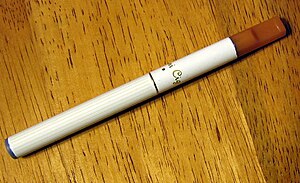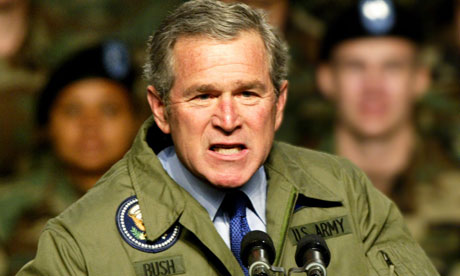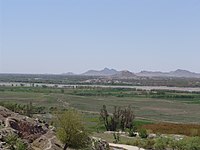 The Food and Drug Administration said Monday it plans to regulate smokeless electronic cigarettes as tobacco products and won’t try to regulate them under stricter rules for drug-delivery devices.
The Food and Drug Administration said Monday it plans to regulate smokeless electronic cigarettes as tobacco products and won’t try to regulate them under stricter rules for drug-delivery devices.
The federal agency said in a letter to stakeholders Monday that it intends to propose rule changes to treat e-cigarettes the same traditional cigarettes and other tobacco products. The news is considered a victory for makers and distributors of the devices, which continue to gain popularity worldwide.





 The White House is considering new sanctions against Syria amid a crackdown by that country’s government against pro-democracy demonstrators. Syria is one of only four countries on the State Sponsors of Terrorism List and is already subject to heavy sanctions, limiting U.S. options.
The White House is considering new sanctions against Syria amid a crackdown by that country’s government against pro-democracy demonstrators. Syria is one of only four countries on the State Sponsors of Terrorism List and is already subject to heavy sanctions, limiting U.S. options. One of the biggest and most explosive clashes at Guantánamo Bay has been fought not between guards and prisoners but between US interrogators, the leaked files reveal.
One of the biggest and most explosive clashes at Guantánamo Bay has been fought not between guards and prisoners but between US interrogators, the leaked files reveal. The Obama administration was working furiously to prevent the reignition of international criticism and Arab fury over the Guantanamo Bay prison in Cuba where hundreds of terror suspects have been kept in extra-judicial limbo, after leaked documents revealed the flimsy intelligence on which many of the detentions have been based.
The Obama administration was working furiously to prevent the reignition of international criticism and Arab fury over the Guantanamo Bay prison in Cuba where hundreds of terror suspects have been kept in extra-judicial limbo, after leaked documents revealed the flimsy intelligence on which many of the detentions have been based. Mars today has a brutal environment — frigid, arid and, because of its very thin atmosphere, constantly bombarded by lethal radiation. But it was worse 600,000 years ago, according to new research that suggests the planet had a far dustier, stormier atmosphere.
Mars today has a brutal environment — frigid, arid and, because of its very thin atmosphere, constantly bombarded by lethal radiation. But it was worse 600,000 years ago, according to new research that suggests the planet had a far dustier, stormier atmosphere. Under the program, fingerprints of all inmates booked into local jails and cross-checked with the FBI's criminal database are now forwarded by that agency to Immigration and Customs Enforcement to be screened for immigration status. Officials said the new system would focus enforcement efforts on violent felons such as those convicted of murder, rape and kidnapping.
Under the program, fingerprints of all inmates booked into local jails and cross-checked with the FBI's criminal database are now forwarded by that agency to Immigration and Customs Enforcement to be screened for immigration status. Officials said the new system would focus enforcement efforts on violent felons such as those convicted of murder, rape and kidnapping. More than 700 leaked secret files on the Guantánamo detainees lay bare the inner workings of America's controversial prison camp in Cuba.
More than 700 leaked secret files on the Guantánamo detainees lay bare the inner workings of America's controversial prison camp in Cuba. Some 500 inmates made a mass prison break via a hand-dug tunnel from a penitentiary in the southern Afghan city of Kandahar early on Monday, regional deputy police chief Nasrallah Yusufzai said.
Some 500 inmates made a mass prison break via a hand-dug tunnel from a penitentiary in the southern Afghan city of Kandahar early on Monday, regional deputy police chief Nasrallah Yusufzai said. Sex trafficking is so widespread, said Nathan Wilson, founder of the Project Meridian Foundation in Arlington, which helps police identify traffickers and their victims, that “no country, no race, no religion, no class and no child is immune.”
Sex trafficking is so widespread, said Nathan Wilson, founder of the Project Meridian Foundation in Arlington, which helps police identify traffickers and their victims, that “no country, no race, no religion, no class and no child is immune.”






























